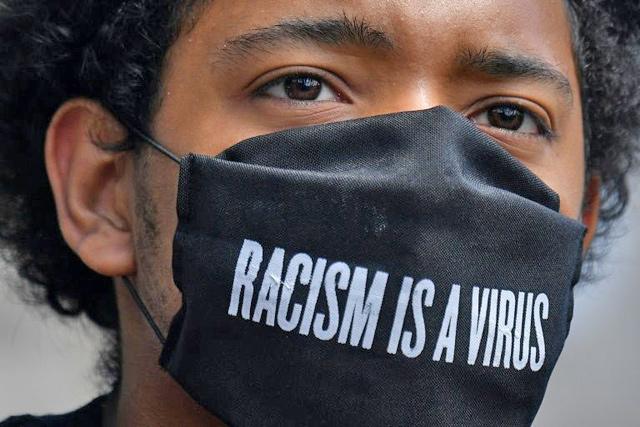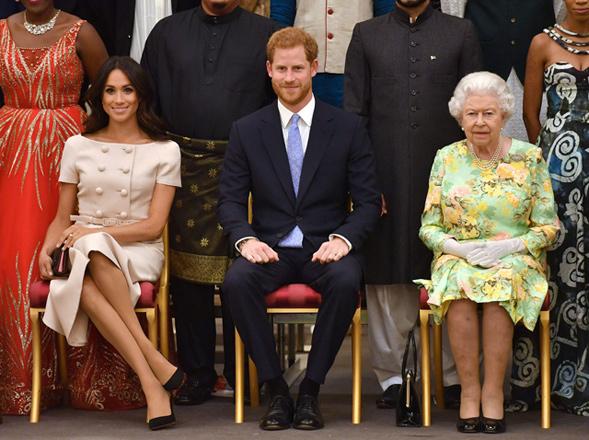You are here
UK COVID report says ‘structural racism’ killing minorities
By AFP - Oct 27,2020 - Last updated at Oct 27,2020

The government has commissioned the latest in a series of reports on racial inequality in Britain (AFP photo)
LONDON — Ethnic minorities in Britain are paying with their lives after years of government neglect has left them uniquely vulnerable to the coronavirus pandemic, according to research published on Tuesday by a racial justice campaigner whose son was murdered in a hate crime.
Black, Asian and minority ethnic (BAME) people are more likely to suffer from obesity, heart disease and diabetes.
But pre-existing conditions cannot explain entirely why they have suffered disproportionately during the pandemic, the six-month review by Doreen Lawrence said.
The report was commissioned by the main opposition Labour Party, which redoubled its criticism of the Conservative government’s handling of the pandemic. Britain has the highest death toll in Europe from COVID-19.
“Black, Asian and minority ethnic people have been overexposed, under-protected, stigmatised and overlooked during this pandemic — and this has been generations in the making,” Lawrence wrote, highlighting their often low-paid work and poor housing.
“The impact of COVID is not random, but foreseeable and inevitable — the consequence of decades of structural injustice, inequality and discrimination that blights our society.”
Lawrence has become a respected figure in campaigns for racial justice in the years since her 18-year-old son Stephen was stabbed to death by a gang of white youths in 1993.
She was made a baroness in the upper chamber of parliament, the House of Lords, in 2013.
Her report builds on research by government statisticians who found that white Britons are at lower risk of dying from COVID-19 than any other ethnic group, except for people of Chinese heritage.
Blaming minorities
Black Britons are four times more likely to die than their white counterparts. If white people were dying at the same rate, Britain would have suffered more than 58,000 additional deaths from the disease, the report said.
The current official death toll stands at 45,365.
But citing researchers, the report said genetics alone could not explain why minority groups were so much more vulnerable.
“Instead, this inequality is likely to be driven by structural and institutional racism... and differential access to healthcare.”
The first 10 hospital doctors to die from the virus were all from BAME backgrounds.
Subsequent analysis showed that 68 per cent of deaths among staff in the state-run National Health Service (NHS) were from ethnic minorities.
Citing one survey, the report said 70 per cent of BAME medics in the NHS felt they had been pressured to care for a patient without adequate personal protective equipment, compared to 45 per cent of white respondents.
But BAME people referenced in the report also complained of unsympathetic treatment by white NHS doctors who had little understanding of their specific medical or cultural needs.
The report also cited COVID-related hostility from the majority white population, including “shocking acts of hate crime” against Chinese and East Asian communities, and conspiracy theories targeting Jews and Muslims.
‘We need bold policies’
The government has commissioned the latest in a long series of reports on racial inequality in Britain, following the publication in 1999 of a landmark study that exposed “institutional racism” in London’s police force over its botched investigation of the Stephen Lawrence murder.
But Doreen Lawrence said the pandemic underlined the need for action now.
“We need bold, joined-up policies and an approach that encompasses tackling ethnic disparities, from housing to employment and health,” she said.
Responding to the report, the government pointed to increased spending to help BAME communities cope with the pandemic and said a “range of factors” was responsible for higher rates of infection and death.
“For this reason we must be careful to identify the root causes of the disparities we’re seeing and not assume they are evidence of discrimination or unfair treatment in public services like the NHS,” a spokeswoman said.
Related Articles
LONDON — Britain's financial regulators on Wednesday announced plans to press for more diversity within the country's financial services sec
LONDON — Boris Johnson left hospital on Sunday to convalesce from coronavirus at Chequers, the country estate of British prime ministers, of
LONDON — Britain's royal family was under pressure on Tuesday to respond to Prince Harry and his wife Meghan's claims of racism, triggering


















